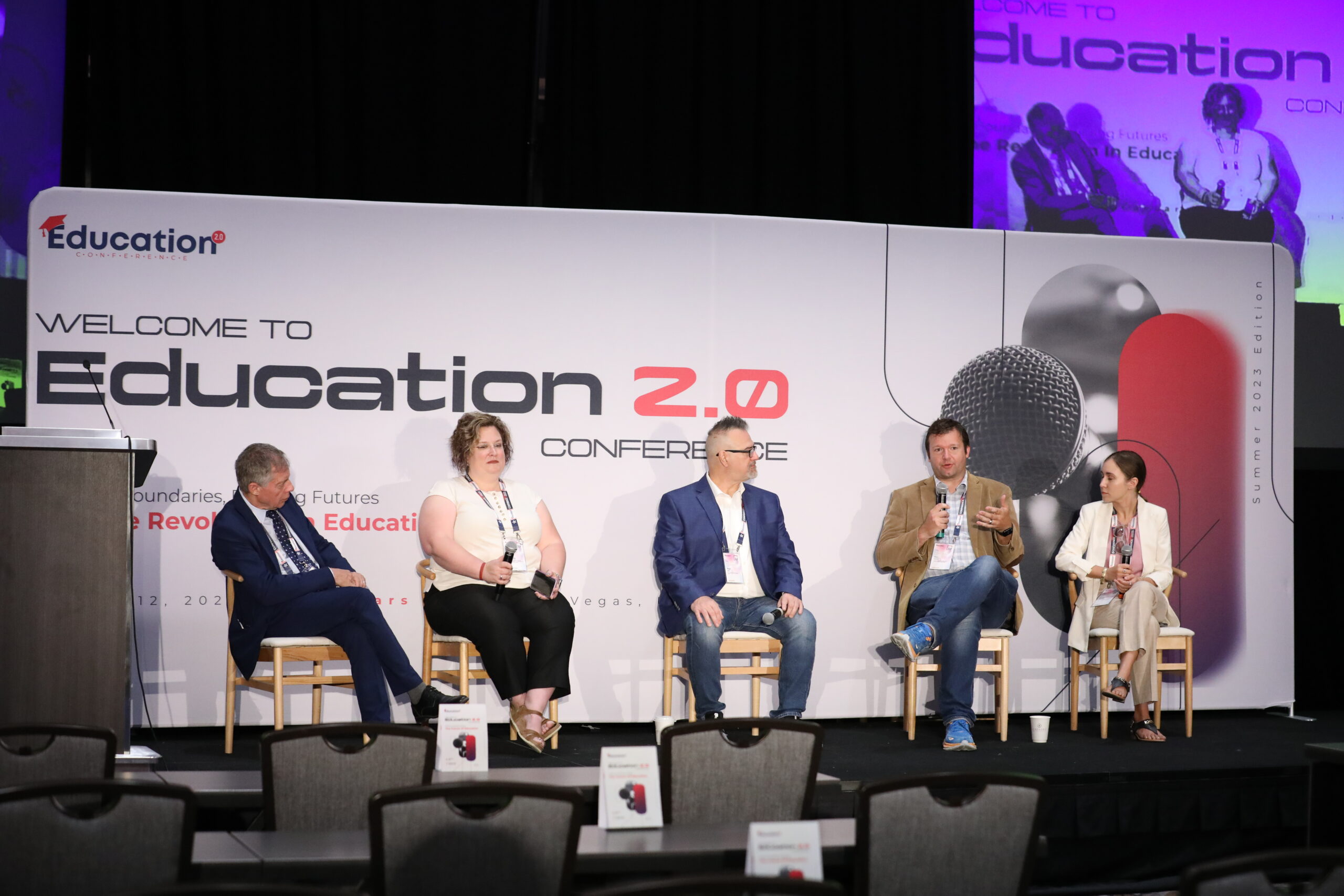
Virtual Reality (VR) has long been heralded as a game-changer in the world of education, offering immersive experiences that were previously unimaginable. As we navigate through 2024, the integration of VR in educational settings has become more prevalent, providing students with interactive and engaging learning experiences. This blog explores the transformative role of VR in education, as shared by the experts of the upcoming education conference in Dubai, notably the Education 2.0 Conference, highlighting its benefits, applications, and future potential.
Table of Contents
What Is Virtual Reality?
Virtual Reality (VR) offers a simulated experience that may closely copy reality or diverge entirely from it. With VR headsets, users are granted a 360-degree perspective of virtual realms, enabling them to interact with digital elements and environments as though they were tangible realities.
Benefits Of VR In Education
Virtual Reality (VR) is revolutionizing the educational landscape, offering immersive and interactive experiences that traditional methods cannot match. This innovative technology provides numerous benefits that are shared by the thought leaders of the upcoming education events in 2024 that enhance students’ learning and engagement.
-
Enhanced Engagement
One of VR’s most significant benefits in education is its ability to capture students’ attention. Conventional teaching approaches frequently find themselves challenged by the pervasive digital distractions that abound in contemporary society. VR, with its immersive nature, captures and maintains students’ interest, making learning more enjoyable and effective.
-
Improved Retention And Understanding
Studies have shown that students retain information better when they learn through immersive experiences. VR allows students to visualize and interact with content, making abstract concepts more concrete and understandable. For instance, a student learning about the solar system can explore planets and stars in a virtual space, gaining a deeper understanding than they would from a textbook.
-
Accessibility And Inclusion
VR can also play an important role in making education more accessible. It can provide personalized learning experiences tailored to the needs of individual students, including those with disabilities. For instance, VR can provide simulations and interactive learning experiences tailored for students facing mobility challenges or learning disabilities, guaranteeing they access the same high-quality education as their peers.
According to the experts of the education conference in Dubai 2024, incorporating VR in education offers unparalleled benefits, from heightened engagement to personalized learning experiences. As this technology rapidly evolves, its potential to transform education and empower students will only grow, making learning more dynamic and effective.
Applications Of VR In Education
The educational era is undergoing a profound transformation with the integration of Virtual Reality (VR), ushering in immersive and interactive learning environments that not only captivate but also enrich comprehension and bolster retention rates.
-
Virtual Field Trips
One of the most exciting applications of VR in education is the ability to take virtual field trips. From the confines of their classroom, students can embark on virtual journeys to historical landmarks, plunge into the ocean’s depths, or venture into the cosmos, expanding their horizons without ever leaving their seats.
These virtual excursions provide experiential learning opportunities that are both engaging and educational.
-
Science And Medicine
In fields like science and medicine, VR is revolutionizing the way students learn. Medical students can practice surgeries in a virtual environment, gaining hands-on experience without the risks associated with real-life procedures. Similarly, science students can conduct experiments and explore complex biological processes in a controlled, virtual setting.
-
Language Learning
Learning a new language presents its challenges, but VR offers unique opportunities to practice and improve language skills. Through virtual immersion, students can engage in conversations with native speakers, explore foreign cities, and experience different cultures. This contextual learning approach enhances language acquisition and fluency.
According to the leaders of the upcoming education events in 2024, Virtual Reality is a game-changer in education, providing students with unprecedented avenues to explore, engage, and absorb knowledge in ways once deemed inconceivable.
Challenges And Considerations
Virtual Reality (VR) is revolutionizing education by offering immersive, interactive learning experiences. However, its integration comes with challenges and considerations.
-
Cost And Accessibility
Despite the numerous benefits, the adoption of VR in education faces several challenges. The cost of VR equipment and software can be prohibitive for many schools, particularly those in underfunded districts. Ensuring equitable access to VR technology is essential to prevent further widening the educational divide.
-
Technical Issues
The learning journey often faces detours due to technical hurdles like hardware hiccups, software bugs, and the incessant demand for updates. Schools need to have robust IT support and infrastructure in place to address these challenges effectively.
-
Content Quality
The effectiveness of VR in education heavily relies on the quality of the content. Poorly designed VR experiences can lead to frustration and disengagement. Educators and developers must collaborate to create high-quality, curriculum-aligned VR content that enhances learning outcomes.
According to the leaders of the upcoming education events in 2024, while VR offers exciting possibilities for education, addressing these challenges is crucial for its successful implementation. Thoughtful consideration of technical, accessibility, pedagogical, and health aspects will ensure VR enhances learning experiences effectively.
Conclusion
The role of VR in education is transformative, offering immersive and engaging learning experiences that traditional methods cannot match. According to the thought leaders of the upcoming Education 2.0 Conference, as we move through 2024, the integration of VR in educational settings is set to become more widespread, providing students with unparalleled opportunities for exploration and learning.
While challenges remain, the potential benefits of VR in education make it a promising tool for the future, paving the way for more interactive, inclusive, and effective learning experiences. To learn more about AR, VR technologies, and more in education, please check the conference agenda.



